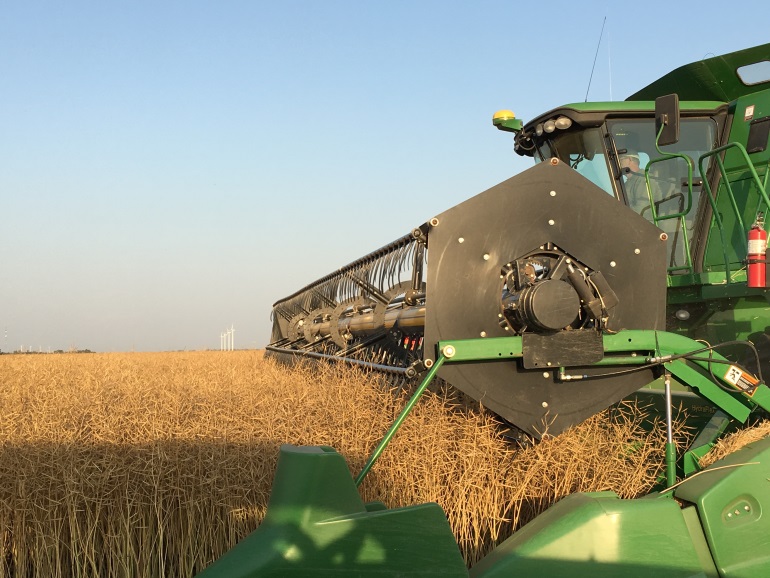On Friday, Prime Minister, Mark Carney, announced a series of new, strategic measures for workers and businesses in those sectors most impacted by U.S. tariffs and trade disruptions including the agriculture sector.
The Prime Minister talked about a new strategy to transform our economy to one that is more resilient to global shocks.
Federal Agriculture Minister Heath MacDonald says the announcement included funding to help producers and businesses in the ag sector and specifically the canola industry.
"We're focused on the biofuel sector, obviously, and how that can help domestically going into the future. The biofuel production incentive proposes the $370 million over two years to establish a liquid biofuel production to safeguard Canada's biodiesel and renewable diesel industry. " He says "There's a regional tariff response initiative that now includes agriculture goods targeted by tariffs, over three years, $1 billion. Then we have also a strategic response fund, a $5 billion fund to support businesses affected by trade disruption to adapt, diversify their capabilities, develop new products, etc."
The government is also temporarily doubling the interest-free portion of the advanced payments program for canola producers to $500,000 for the 2025-26 programming years.
The full list of measures is available here.
Meantime, the Canadian canola industry is disappointed with the support measures saying it falls short of what is required to support the industry during this unprecedented trade disruption.
President & CEO of the Canadian Canola Growers Association (CCGA) Rick White says farmers should not be expected to borrow their way out of this situation
"The Advanced Payments Program (APP) is not designed to provide the required support canola farmers need under this situation.
The President and CEO of the Canola Council of Canada (CCC) Chris Davison says the measures announced on Friday do not reflect the seriousness of the challenge facing the value chain.
"The government has also not recognized extensive impacts on the rest of the canola value chain, including exporters and processors who are also facing significant financial impacts as a result of the Chinese market closure. This must be addressed."
They note that while the industry encouraged there will be some support for biofuel production, the announced Biofuel Production Incentive (BPI) does not go far enough and will not drive meaningful additional domestic demand for canola.
The Agricultural Producers Association of Saskatchewan (APAS) welcomes the federal government’s announcements to start addressing trade disruptions, but is concerned by the significant gap in the lack of support for the Pulse sector.
President Bill Prybylski points to the exclusion of the pulse industry, which is equally affected by trade disruptions.
APAS notes that in 2024, Saskatchewan farmers produced 1.5 million metric tonnes of peas. Today’s market conditions equate to a $150 million loss to farmers - yet no specific support for pulses was mentioned.
"We need meaningful investments in domestic processing for ALL commodities. We’ve been urging support for projects like Federated Co-operatives and Bunge’s Regina projects for canola, but pulses seem to have been left completely out of the conversation."
He urged the federal government to take a more comprehensive approach, ensuring a level playing field across all sectors.
"The canola measures are welcome, but trade disruptions don’t discriminate; they hurt everyone. The pulse sector is facing the same uncertainties as canola, and leaving them out of these plans affects all of us. The success of Saskatchewan farming is interconnected; if one sector struggles, we all feel it."
